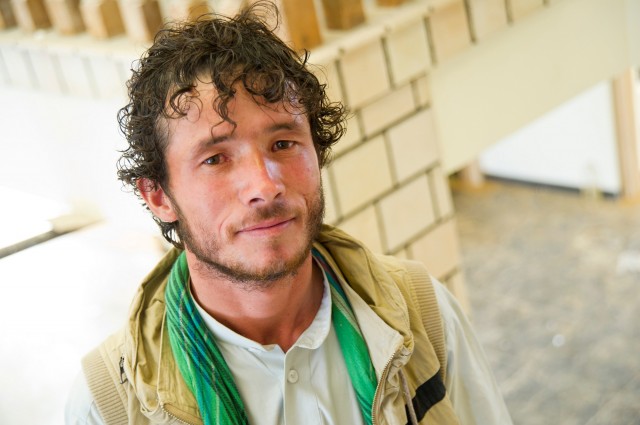
A recent symposium convened by the United States Institute of Peace turned a gender-sensitive eye on the important effects that gender roles can have on security. Panelists from countries such as Ireland, the Democratic Republic of the Congo (DRC), Brazil, Sri Lanka and Colombia spoke at an event called Men, Peace and Security, presenting various perspectives on conflict and sharing ideas about how to mitigate violence in both the public and private arenas.
Their experiences in regional conflicts like those in eastern DRC, urban drug wars, and intimate partner and sexual violence served as the basis for exploration into the ways in which gender inequalities and gender norms, especially those related to masculinity, contribute to violence and conflict—and how they can be changed.
Understanding how concepts of masculinity affect peace and security can help Creative work more effectively in conflict-affected regions, and help inform the design of youth-focused programming where preventing violence is key.
In a session called “Dying to be Men,” symposium panelists questioned the meaning of terms such as “strength” and “honor,” and how common interpretations of them have led to conflict in contexts such as Northern Ireland, Croatia and elsewhere.
They noted the harmful effects possible when a term such as “honor” is internalized by men in ways that lead them to aggression and war—to preserve the perceived honor of their country, for example.
Subsequent speakers pointed out that such, mostly male behavior, is learned. It is the result not of nature but of nurture and, as such, it can be changed. In fact, it must change if we want peace and security.
Of course, patterns of violence are often deeply rooted in people—ingrained, oftentimes, as children are themselves forcibly made into soldiers, maimed or raped, or victimized by violence.
Change involves helping ex-combatants or other victims first unlearn old beliefs and habits of violence. Mental health services and psycho-social counseling are critical to the process, enabling ex-combatants cope with and overcome trauma and, eventually, unlearn old behaviors.
It also requires learning new behaviors.
Youth can present a window of opportunity for this type of behavior change, whether as a preventive or after they’ve been involved in violence and conflict. Speakers offered a number of successful strategies to engage young men, the most important being to emphasize the future and focus on the positive contributions they can make to their communities.
This often requires meeting young people where they are—quite literally in some cases by reaching out to them in their own neighborhoods and spaces. Fatherhood is often a turning point that can also offer an entry point for interventions.
A panel that addressed the psychosocial dimensions of fighters brought up sexual violence, a problem that affects both women and men, military members and civilians. Presenters pointed out that men are less likely than women to report abuse against them. They hesitate for the some of the same reasons that inhibit women from reporting abuse: fear of retaliation and of being stigmatized.
Other symposium speakers discussed intimate partner violence, a phenomenon that intensifies in post-conflict settings. Not only is this type of violence an endemic problem globally, even in overtly non-conflict situations, but it both reflects and reinforces gender inequalities.
In post-conflict settings, men’s inability to fulfill the traditional roles of protector and provider are often responsible for triggering intimate partner violence. The same norms also fuel intimate partner violence in more peaceful locales, and on an on-going basis.
If we want to reduce sexual violence, whether in the military or in society, we must begin by changing the language around it and recognizing it for what it is—an act of violence, not sex. Change also requires leadership, motivation and learning both what to do and how to do it.
Overall, the event made it clear that mitigating violence of all kinds requires challenging harmful gender norms, redefining masculinity and creating and acting on alternate visions of what it means to be men and women.
The process can and should start right away, speakers recommended, even in ongoing crisis situations: They may be opportunities to interrupt or prevent further violence and begin to build peace and security.
To learn more about the symposium and its speakers, please visit the event website.
Rekha Mehra is a Senior Associate in Creative’s Cross-Funcational Group. She focuses on Gender in Development.

